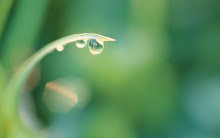As there are so many ways to use Wikis for educational purposes, I found it helpful to peruse a site that is a composite of several educational wiki sites with their links. It is: http://educationalwikis.com/Examples+of+educational +wikis. One of the best example sites is:
Asalaamualaikum-a wiki that focuses on Pakistan for ages 10 & 11. It is a great example of student involvement. One of the pages advertised obtaining a 'voki'-a customized voice and a character-avatar, to participate! (www.voki.com if you are interested!)
The self-correcting mechanism of wikis lends itself to a bit of intellectual competition or at least, the production of a worthy product to avoid correction. It keeps participants on their toes to always be in a state of a peer reviewer or reviewee. (not a real word!) Adding to or correcting someone's story, is done in many areas in education. This medium simply extends this practice to a broader audience and is not limited to only the classroom setting.
Subscribe to:
Post Comments (Atom)
URLs for Tools Class:
Social Object:
http://confusedofcalcutta.com/2008/02/16/musing-about-social-objects-mollluscs-that-matter/
Educational Uses of Blogs: http://www.pembinatrails.ca/program/technology/uses_of_blogs...
Social Networks and Education :
http://www.sciencedaily.com/releases/2008/06/080620133907.htmlhttp://delicious.com/lindabradford
http://www.flickr.com/photos/ha112/234233755/http://www.slideshare.net/heyjudeonline/creative-web-20-learning?from=email&type=share_slideshow&subtype=slideshow
Annotation: http://lelutes.wordpress.com/
Podcast: http://web.mac.com/lindabradford2002




2 comments:
Your comment about other contexts in which we all serve as peer reviewers and reviewees made me think about the concept of "joining conversations"--academic or otherwise.
Maybe theses and dissertations wouldn't be such a leap if students were exposed to concepts like consulting the available literature, finding and filling gaps, connecting to the on-going narrative, etc. from grade school on...
"The self-correcting mechanism of wikis lends itself to a bit of intellectual competition or at least, the production of a worthy product to avoid correction. It keeps participants on their toes to always be in a state of a peer reviewer or reviewee."
This is one reason why we post our homework on publicly accessible blogs. The dynamic is somewhat different, of course - people will comment on your blog story instead of correcting it out from under you on a wiki. But this is a critical insight as well.
Nice job this week!
Post a Comment